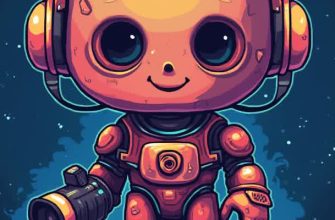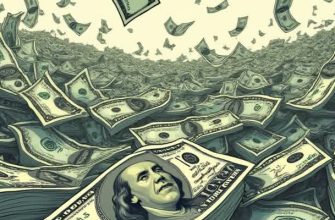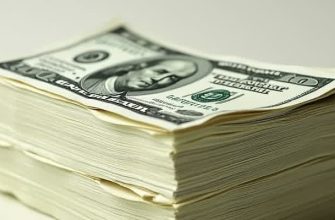
AI technologies have revolutionized various industries, and the music world is no exception. In recent years, the rise of AI-generated K-pop content has transformed how fans engage with their favorite artists and explore new music. These tools use machine learning algorithms to create realistic, original content that mimics the style and sound of popular K-pop idols.
Key Features of K-pop AI Content Generators:
- Voice Synthesis: AI systems can now generate vocals that resemble the tones and styles of K-pop singers.
- Music Composition: Algorithms can compose melodies that align with the genre’s dynamic beats and rhythms.
- Visual Creation: AI can also design virtual K-pop idols, using deep learning to generate lifelike appearances and animations.
“AI-generated K-pop content pushes the boundaries of creativity, allowing both creators and fans to interact with virtual idols in new and immersive ways.”
Popular AI Tools in the K-pop Scene:
| Tool | Features | Use Case |
|---|---|---|
| Vocaloid | Voice synthesis for creating virtual singers | Used to generate vocals for songs in the style of K-pop idols |
| Artbreeder | AI-generated images for virtual characters | Used to create realistic avatars for K-pop-inspired virtual idols |
| Amper Music | AI-driven music composition tool | Creates original K-pop styled beats and tracks |
- Maximize Fan Engagement with Custom Kpop Content from Ai Generator
- How AI Content Creation Can Boost Engagement
- Examples of AI-Generated Kpop Content
- Table: Benefits of AI-Generated Content in Kpop
- Reducing Time and Expenses with AI-Driven Kpop Music Production
- Key Benefits of AI in Kpop Music Creation
- Comparison of Traditional vs AI-Based Kpop Music Production
- Legal Considerations When Using AI for Kpop-Style Content Creation
- Copyright Issues
- Licensing and Fair Use
- Table of Key Legal Considerations
Maximize Fan Engagement with Custom Kpop Content from Ai Generator
In the competitive world of Kpop, fan engagement is crucial for maintaining a strong connection with audiences. One of the most innovative ways to enhance this connection is by leveraging AI-powered tools to generate customized Kpop content. These AI generators allow fans and content creators to interact with their favorite groups in entirely new and personalized ways. By utilizing these tools, Kpop agencies and independent creators can provide content that resonates on a deeper level with fans, driving engagement and loyalty.
AI-generated content can range from personalized visuals, such as album covers and fan art, to interactive experiences like virtual concerts or customized music recommendations. This level of customization empowers both fans and artists to explore new creative possibilities, bridging the gap between the Kpop world and its global audience.
How AI Content Creation Can Boost Engagement
- Personalized Content: Fans can create custom visuals or merchandise featuring their favorite idols or concepts, enhancing their emotional connection to the content.
- Interactive Fan Experiences: AI-driven tools can simulate live interactions, enabling fans to feel closer to their idols by generating virtual conversations, exclusive clips, or behind-the-scenes content.
- Real-time Content Updates: With AI, content creators can quickly adapt to fan preferences, allowing for constant updates that align with the evolving tastes of the fanbase.
Examples of AI-Generated Kpop Content
- AI-Generated Fan Art: Unique, stylized artwork based on individual preferences or specific idol features.
- Virtual Idol Interaction: AI avatars that communicate with fans during live streams, creating personalized experiences in real-time.
- Customized Merchandise: AI tools can design one-of-a-kind Kpop merchandise that reflects personal fan choices, from clothing to accessories.
“By using AI generators, we’re no longer limited to traditional fan experiences. Fans can now interact with Kpop in ways that were once unimaginable.”
Table: Benefits of AI-Generated Content in Kpop
| Benefit | Description |
|---|---|
| Enhanced Personalization | Fans can create unique content based on their preferences, making them feel more connected to the artists. |
| Increased Fan Interaction | AI enables real-time, interactive experiences that deepen fan involvement in the Kpop community. |
| Boosted Creativity | Content creators can experiment with new ideas and formats, leading to fresh and exciting content for the fans. |
Reducing Time and Expenses with AI-Driven Kpop Music Production
In the ever-evolving Kpop industry, the demand for new and innovative music is constant. However, traditional music production can be a time-consuming and expensive process. The emergence of automated music creation tools powered by artificial intelligence (AI) has significantly altered this landscape. By leveraging AI, production teams can expedite the process of crafting Kpop tracks while also cutting down on the overall costs associated with human labor and resource allocation.
AI-powered platforms help streamline various stages of music creation, from composition to mixing. These tools offer advantages such as faster turnaround times, personalized music styles, and reduced reliance on external producers. Below is a breakdown of the key advantages provided by AI in Kpop music production.
Key Benefits of AI in Kpop Music Creation
- Time Efficiency: Automated tools speed up composition, arrangement, and mixing processes.
- Cost Reduction: Fewer human resources are needed for tasks like mastering or vocal editing.
- Consistency: AI maintains a high level of consistency throughout the production cycle, ensuring the music meets industry standards.
“Automated systems are changing the way Kpop music is created, allowing faster releases and reducing costs significantly.”
Comparison of Traditional vs AI-Based Kpop Music Production
| Aspect | Traditional Production | AI-Based Production |
|---|---|---|
| Time to Complete Track | Weeks to Months | Days to Weeks |
| Production Cost | High (Multiple specialists required) | Lower (Reduced workforce and resources) |
| Flexibility | Limited by the skills of producers | Highly flexible, can create diverse styles instantly |
Legal Considerations When Using AI for Kpop-Style Content Creation
When leveraging AI to create Kpop-style content, creators must carefully navigate legal frameworks to avoid potential copyright violations and ethical issues. AI-generated music, visuals, or choreography that closely resembles existing Kpop materials can lead to legal complications, especially if the generated content is used commercially. As AI becomes more integrated into the creative industry, understanding these legal implications is crucial for ensuring compliance and protecting both the creators’ and the original artists’ rights.
Several key legal concerns arise when using AI for generating Kpop-style content. These include copyright infringement, the ownership of AI-generated works, and the potential misuse of an artist’s likeness or intellectual property. To mitigate risks, creators should take proactive measures in understanding and respecting intellectual property laws, obtaining necessary licenses, and using AI tools responsibly to avoid infringing on the rights of established artists and their works.
Copyright Issues
The use of AI tools to create Kpop-inspired content can sometimes inadvertently lead to copyright issues. This is particularly the case when the AI generates works that are strikingly similar to existing songs, videos, or performances. It is essential to understand the concept of derivative works in copyright law, where AI-generated content may be considered a derivative of original copyrighted material.
- Derivative Works: AI-generated music or visuals may closely resemble copyrighted Kpop content, leading to potential infringement claims.
- Originality and Ownership: It is vital to determine who owns the rights to the content created by AI. Typically, ownership may be claimed by the developer of the AI tool or the user creating the content.
“When creating content with AI, it’s crucial to ensure that the output does not infringe on existing copyrights, as this can lead to serious legal consequences.”
Licensing and Fair Use
Licensing and fair use are also important aspects of AI-generated content in the Kpop genre. Creators can mitigate legal risks by ensuring that they have the proper licenses for any underlying material used in AI generation, such as pre-existing music, choreography, or images. Fair use can sometimes apply, but it is a complex legal doctrine that varies by jurisdiction.
- Obtain Proper Licenses: Ensure that any copyrighted material used for training AI is properly licensed.
- Consider Fair Use: Evaluate if the generated content can fall under fair use, especially if it’s transformative and not directly replicating existing works.
Table of Key Legal Considerations
| Legal Concern | Explanation |
|---|---|
| Copyright Infringement | AI-generated content that is too similar to copyrighted Kpop material can lead to legal disputes. |
| Ownership | The question of who owns the rights to AI-generated works–whether it’s the AI creator, user, or another party–can create uncertainty. |
| Licensing | Proper licenses must be obtained for any pre-existing content used by AI, including music, choreography, and visuals. |









